Everything you Need to Know About Sustainable Socks
Key Takeaways
- It’s no surprise that sustainable socks are made from more environmentally friendly materials such as organic cotton, bamboo, or recycled fibres. These materials reduce environmental impact while providing all-day comfort and durability.
- The benefits of sustainable socks include things such as more humane production practices and using less water and chemicals. They come with certifications like GOTS and Fair Trade, which ensure their eco-friendly and ethical practices.
- Common myths about sustainable socks, like being less chic or comfortable, just aren’t true. They marry quality with functionality and trendy styles that can be worn for any occasion.
- By opting for sustainable socks, you’re actively participating in circular fashion by lessening textile waste and supporting sock recycling. This makes perfect sense with the wider movement to close the recycling loop in the fashion industry.
- When you purchase from brands committed to fair labour practices, you stand up for workers’ rights. These brands frequently employ sustainable manufacturing practices, minimizing their carbon footprint through local sourcing of materials.
- Creating an eco-friendly wardrobe and wearing sustainable socks helps protect the planet. It’s a great way to support ethical fashion movements, doing your part to help create a more sustainable future.
Sustainable socks are designed to be produced with more sustainable materials and processes that reduce their impact on the planet without compromising comfort and durability. Most of these socks use organic cotton, bamboo fibres or recycled materials, using less non-renewable resources.
By prioritizing ethical manufacturing, they contribute to fair labour practices and minimize waste with biodegradable or recyclable packaging. Sustainable socks provide durable quality, resulting in less need for replacements and less consumption in the long run.
Be it for everyday use or rugged outdoor adventures, they provide fashion and performance—all without harming the earth. By supporting them, you join us in making a small but meaningful step toward a greener lifestyle.
This decision marries practicality with living more consciously. By combining comfort and sustainability, they’re the perfect pair for anyone who wants to do their part to protect the planet.
What Are Sustainable Socks

Sustainable socks, such as sustainable wool socks, are one of the best eco-friendly alternatives to create an overall more conscious wardrobe. Made from environmentally-friendly materials, these socks reduce impact on the planet while focusing on ethical production. By utilizing sustainable practices, sustainable socks ensure a seamless blend of comfort, durability, and responsibility.
1. Definition of sustainable socks
Sustainable socks are made with sustainable materials and production practices that save our precious resources. Organic cotton uses significantly less water than conventional cotton. It cuts out harmful pesticides, which protects soil and water from pollution.
It’s not just the planet that benefits from these socks – your health and comfort come first. They are breathable and help prevent skin irritation as they are free from harsh chemicals. These products are engineered for longevity.
Their durable materials and tight stitching are built to last through everyday wear, so they’re a wise - and wallet-friendly -investment over time. A good pair of sustainable socks will last longer than fast fashion options, providing you with both economic and eco-friendly advantages.
2. Key features of sustainable socks
Organic cotton is a popular material for sustainable socks, thanks to its soft feel and breathable quality. It is grown without the use of any synthetic pesticides, making it a sustainable option for the planet and a soft, safe choice for the skin.
Bamboo fibre is another interesting material of choice. Renowned for its natural antibacterial features, it works to reduce odour and wick away moisture, leaving feet feeling dry and fresh.
Socks made with recycled polyester or nylon help to divert textile waste from landfills. These socks give new life to discarded materials, helping advance circular fashion. This model prolongs the lifecycle of textiles and keeps valuable materials from taking up space in our landfills.
3. Common misconceptions about sustainable socks
A common myth is that eco-friendly socks lack style or comfort. In truth, most sustainable brands are creating them to reflect cutting edge contemporary style, with the best wearability.
Ethical production is another cornerstone, with fair labour practices making sure that workers are paid a living wage and work in safe conditions. Sustainable manufacturing processes reduce waste and energy consumption, including the use of renewable energy in manufacturing facilities.
Certifications like the Global Organic Textile Standard (GOTS) and Fair Trade help ensure claims of ethical and sustainable practices. They give consumers transparency and trust.
Why Choose Sustainable Socks
Choosing sustainable socks, like sustainable wool socks and vegan socks, is one of the easiest ways to make mindful decisions that support our planet, our health, and our international friends. Creating a wardrobe that is both stylish and comfortable, while aligning with your values, is totally possible. By making sustainable choices, you can contribute to a greener world.
1. Benefits for the environment
Closing the recycling loop in textiles is an important part of reducing waste. A pair of socks created with 100% recycled fibres is a pretty good start. They recycle or upcycle materials such as ocean-fished plastic bottles and pre-loved fabrics.
Sustainable fibres reduce landfill impact and save precious resources, such as water and energy, in the manufacturing process. For example, recycled cotton socks use 80% less water than traditional cotton. This sustainable approach addresses a pressing issue in the fashion industry: excessive waste.
Choosing these types of products makes an immediate impact on lowering your environmental footprint.
2. Comfort and health advantages
Socks that are made locally within the UK offer a range of advantages. Shorter shipping distances reduce environmental impact carbon emissions, and we control the quality by our UK-based production.
These ethical practices don’t just help the environment, they’re a boon to local economies by creating stable jobs. Additionally, with the use of organic fibres, without any harmful chemicals, it increases skin health, making it ideal for sensitive skin.
3. Durability and long-term use
When you opt for durable socks, you invest in a product that lasts longer, promoting a culture of mindful consumption. Telling your stories, like using upcycled, worn-out socks to make cleaning cloths, will help inspire and build a community of sustainability innovators.
Activities such as clothing swaps help to demonstrate the power of collective action to minimize the growing issue of textile waste.
Sustainable Materials in Socks
Socks created with sustainably sourced materials, like sustainable wool socks and organic cotton yarn, are good for the planet and your feet—with a cozy feel that’s built to last. By choosing these sustainable materials, you can help minimize your carbon footprint and promote ethical practices in the fashion industry. Here’s a closer look at some of the key sustainable materials found in socks.
Organic cotton benefits and uses
Organic cotton is grown without the use of toxic synthetic pesticides or fertilizers. This is what makes it a safer choice for the environment and your skin. It is frequently GOTS-certified, which guarantees compliance with the strictest environmental and social criteria.
Brands including Nisa use GOTS-certified organic cotton in their socks. This decision ensures that their materials meet or exceed the most rigorous global safety standards. Organic cotton socks made for infants are available.
With size options starting as small as 0-18 months, these socks offer a cosy and tender choice for your tiniest friends. The material is breathable, soft, and perfect for everyday wear, providing a premium feel without sacrificing sustainability.
Bamboo fibres and their properties
Bamboo fibres have gained a reputation as an eco-friendly wonder material with natural antibacterial, anti-fungal and moisture-wicking properties. These characteristics make bamboo socks a great option for those with busy, active lifestyles and on-the-go lives that require odour control and dryness.
Bamboo grows quickly and uses little water, making it a sustainable resource as well. This sustainable material is both biodegradable and responsible for making sure ARMEDANGELS socks stay soft and flexible to the skin.
Recycled materials reducing waste
Recycled materials, such as those coming from recycled plastic bottles or recycled textile scraps, meet the rising demand for consideration of landfill waste. When repurposed, these post-consumer waste materials provide a second life to products that would otherwise negatively impact our environment.
Recycled fibres are a key ingredient in many sustainable socks, resulting in soft, long-lasting, environmentally-friendly style. Certified B-Corp brands, for instance, integrate recycled fibres into their supply chains to reduce CO2 emissions and contribute to large-scale reforestation projects.
Ethical Production Practises
By incorporating ethical production practises in the creation of sustainable socks, we can be sure our environmental and social responsibilities are being fulfilled. These approaches emphasize fairness, transparency, and accountability, which are consistent with values that today’s consumers uphold and expect, building trust along the way.
By looking at fair labour, sustainable manufacturing, and certifications, we can get a sense for how these practises contribute to crafting a more ethical product.
Importance of fair labour practises
Fair labour practises are at the core of ethical production. Workers at every stage, from extracting our raw materials to final assembly, deserve safe working conditions and dignity in the workplace. They deserve to have reasonable hours and fair wages.
In addition, most sustainable sock brands work closely with suppliers that adhere to stringent ethical production practises. This is to make sure that exploitation has no place in their production process.
On the ground, for example, producers who source organic cotton from farmers actively support programs that deliver improved education and healthcare to farming communities. Transparent supply chains are another key element, providing consumers the ability to trace the origins of their purchases, creating an extra layer of accountability.
Sustainable manufacturing processes
Sustainable manufacturing helps eliminate waste and protects our planet by using less harmful materials. This all starts with a commitment to sustainable and ethical production practises, including switching to renewable energy sources, like wind or solar energy, and conserving water.
Other brands have moved to closed-loop systems, recycling water used in dyeing processes so that it doesn’t become pollution. Alternatives such as bamboo or recycled polyester are becoming more popular, because they use less resources.
As an example, bamboo farming requires far less water than traditional cotton, making it a sustainable choice.
Certifications ensuring ethical standards
Certifications are an important part of the process of substantiating ethical claims. Labels such as Fairtrade, GOTS (Global Organic Textile Standard), and OEKO-TEX Standard 100 provide assurance that products meet strict environmental and social criteria.
Fairtrade advocates for fairer trading practices and working conditions, and GOTS certification guarantees that goods are made with organic fibers and sustainable methods.
OEKO-TEX helps consumers protect themselves with products independently certified to be free from harmful substances. These certifications help empower buyers to make informed decisions, creating a direct link between ethical production and consumer trust.
Role of Sustainable Socks in Fashion
Instead of being merely a functional accessory, sustainable socks, such as recycled socks and sustainable wool socks, come with added value. They represent a small but conscious step towards a greener and more ethical fashion industry. With a focus on sustainability practices and eco-friendly materials, these socks address key environmental and social issues, making them an essential addition to any conscious closet.
Building an eco-friendly wardrobe
Sustainable socks are an important part of any company’s environmental footprint. With millions of socks ending up in landfills yearly, choosing options made from recycled materials promotes a circular economy and lessens textile waste.
Brands that use organic materials, like GOTS-certified cotton, do even better by minimizing farming and processing impacts and keeping harmful chemicals out of the equation. By making durability a priority, sustainable socks reduce the need for constant repurchases, promoting a more sustainable mindset toward consumption.
Versatile sock options for every style
No matter what statement fashion socks she seeks, sustainable socks can fit every fashionable foot and pair style with sustainability. In addition to supporting the environment, sustainable socks come in styles that fit casual, business, and active wardrobes for practicality that looks great, too.
Most brands today have a vegan-friendly alternative, made with plant-based or synthetic fibres that cater to animal welfare values.
Supporting the ethical fashion movement
Choosing sustainable socks, like recycled socks and sustainable wool socks, supports brands committed to fair practices, such as Fair Trade certification, ensuring worker welfare across the supply chain. Initiatives such as tentree’s tree-planting programme boost this environmental impact, making each purchase a step in the right direction.
Recycling and Circular Fashion in Socks
In recent years, sustainability in the fashion industry has gained considerable attention, and socks, particularly sustainable wool socks, are no different. Recycling and circular design in textiles seeks to reduce waste, save resources, and prolong the life cycle of materials. Through a circular economy that reimagines the way friendly dedoles socks are created, utilized, and ultimately transformed, this method promotes sustainable consumption and production practices.
Closing the recycling loop in textiles
The concept of closing the recycling loop in textiles depends on being able to convert the material we throw away into something new. When it comes to our socks, we take our fibres from post-consumer waste. This includes using upcycled clothing and scraps from industrial manufacturing to make new pairs.
Methods, including mechanical and chemical recycling, make sure these materials are broken down in the most effective way. Mechanical recycling means shredding fabrics and recycling them into fibres, while chemical recycling breaks down textiles into their raw elements. Both approaches provide opportunities to reclaim valuable resources that would otherwise be destined for landfills or incinerators.
For instance, businesses today collaborate with take-back programs that gather used-up socks, recycle them, and create new yarns out of them.
100% recycled sock options available
Brands like Bombas and others have launched socks with their entire product made from recycled inputs. These new choices frequently use polyester made from recycled plastic beverage containers or cotton recycled from worn-out clothing.
As an example, a pair of 100% recycled socks could use recycled cotton blended with elastane that’s been re-captured using a circular method. When made with recycled content, such socks are still all about quality, durability, and comfort, just with less dependence on virgin materials.
They frequently feature bold colours or patterns, allowing people to have fun with their socks.
How recycled materials reduce waste
Incorporating recycled content into sock production makes a huge dent in waste by keeping materials like these out of our landfills. From water savings of recycling one tonne of textiles estimated at 20,000 litres, the environmental benefits are substantial.
Besides water conservation, material reuse significantly reduces the energy usage and GHG emissions tied to manufacturing virgin fibres. When consumers buy socks that incorporate recycled fibers, they’re taking an active role in the circular economy.
In this system, waste is constantly repurposed into new products.
Produced Locally and Sustainably
By producing sustainable wool socks locally and sustainably, we strike the perfect balance between environmental awareness, ethical labour practices, and community support. Brands that prioritize local production of friendly dedoles socks reduce their environmental footprint by a large margin, positively impacting workers’ lives and providing a significant stimulus to the regional economy.
Benefits of UK-based production
UK-based production means high quality, under ethically sound labour conditions. Strict regulations in the entire region guarantee their employees fair treatment and working conditions. Isle of Wight based, Rapanui are creating ethical socks using organic cotton and implementing a 100% sustainable production process.
NWHR, based in Spain, takes that local pride a step further, manufacturing socks in small family-run workshops. These workshops comply with EU labor laws, making ethical craftsmanship a cornerstone of their practices.
Reducing carbon footprint through local sourcing
Additionally, sourcing materials locally reduces the carbon emissions impact of transportation dramatically. This practice is an important facet of lowering the carbon footprint. Patagonia is the industry leader in the use of recycled fibers.
By doing so, they lower the demand for virgin resources and open the door for a circular economy. BAM Bamboo Clothing produces eco-friendly, stylish bamboo basics. They’ve received a “Good” rating for their remarkable sustainability achievements, like reaching zero waste and pollution targets.
Supporting local economies with ethical practices
Brands such as Nisa, who employ women from refugee backgrounds, show the social benefits of ethical practices. Fair Trade-certified companies empower workers throughout the supply chain, improving the lives of thousands.
Whether it’s Seasalt’s 2005 Soil Association organic certification, or their membership to the Better Cotton Initiative, their focus on sustainably-sourced organic cotton is clear.
Community and Sustainability
Sustainable socks, particularly sustainable wool socks, are not an eco-friendly fad; they represent a significant innovation in the realm of sustainable fashion. This approach emphasizes ethical production and shared accountability, fostering a community that values proactive, sustainable innovation. By focusing on these practices, we not only achieve better environmental results but also strengthen the bond between consumers, producers, and environmental advocates.
Encouraging consumer awareness
Teaching sustainability starts with providing understandable, relatable information. Few understand the environmental effects of the synthetic materials that make up most conventional sock offerings. Many of these fibres are derived from petroleum-based materials, adding to the vehicle of microplastic pollution.
Natural or recycled materials are the basis for the production of sustainable socks—we’re talking organic cotton or bamboo for starters. This method uses significantly less water and other harmful chemicals in production. Publicizing these benefits is key to empowering people to make the right choice.
Labelling practices, such as certifications like GOTS (Global Organic Textile Standard), provide transparency, allowing consumers to trust the product's eco-credentials.
Engaging in the sustainability conversation
This is an example of how sustainability really does prosper through discussion. Brands that produce eco-friendly socks are deeply committed to their communities. Through social media and in-person events, they’re telling the story of their progress, challenges, and successes.
Or perhaps they will talk about the carbon footprint of their supply chain. Furthermore, they could lift up creative approaches that minimize energy use in production. This level of open communication goes a long way in establishing trust and educating the public on the larger, far-reaching benefits of sustainability.
Inspiring collective action for change
Real change can only happen when people unite and organize around a shared vision. Most sustainable sock brands work in collaboration with nonprofits to help support environmental efforts, like reforestation or ocean clean-up initiatives.
They could go a step further and inspire their customers to recycle their old socks through take-back schemes, keeping more textiles out of landfills. These initiatives demonstrate how small actions, like choosing the right pair of socks, can contribute to a larger movement towards sustainability.

At Sock Geeks, we believe that comfort, style, and sustainability can go hand in hand. Our collection of sustainable socks, crafted from organic cotton, bamboo fibres, and recycled materials, offers durable, breathable, and planet-friendly options for everyday wear. We prioritize ethical production practices, ensuring fair labour and minimal environmental impact. With stylish designs and eco-conscious materials, our socks provide long-lasting performance while supporting the movement for a greener future. Join us in taking a step toward sustainability - because every step counts.
Conclusion
Sustainable socks are more than just a wardrobe staple. They represent intelligent selection, superior materials, and responsible manufacturing. Every pair helps us make a change - one toward more waste being reused, less going to landfills, and a healthier planet. From choices produced with organic cotton, bamboo or recycled fibres, these socks are hard on the earth while protecting your feet.
Buying sustainably made socks supports fair labour practices and the local economy as well. It’s a statement against fast, cheap, and exploitative fashion, and an embrace of quality and fairness in the things you wear. Whether it’s making the change to sustainable socks or something else, small changes add up to significant impact.
Want to learn more about making more sustainable sock choices? Join the revolution of conscious consumerism and make your first step your socks. First step forward never felt so comfortable.
Frequently Asked Questions
What are sustainable socks?
Sustainable socks, such as sustainable wool socks and vegan socks, are produced with environmentally-friendly materials and under ethical manufacturing processes. They reduce the negative impact on the planet while supporting equitable labour, allowing you to waste less and live more sustainably.
Why should I choose sustainable socks?
By choosing sustainable wool socks, you’ll lower your carbon footprint, support ethical manufacturing practices, and contribute to circular fashion. These comfortable socks are more durable than traditional options. Investing in them is good for you and the planet.
What materials are used in sustainable socks?
Sustainable socks, such as those made from organic cotton, recycled polyester, or sustainable wool, are renewable and biodegradable materials that are better for the planet than synthetics.
How are sustainable socks ethically produced?
Ethical production means fair wages, safe working conditions, and eco-friendly production processes. Sustainable sock brands, such as those offering recycled socks and sustainable wool socks, cut out exploitative practices and prioritize transparency, so you can trust that their products are made ethically.
Are sustainable socks stylish?
Yes, sustainable socks, including stylish sustainable wool socks and quirky socks, are chic and trendy. Just like their disposable counterparts, brands now offer fashionable designs, bright colours, and funky patterns, making it easy to support sustainable fashion.
Can sustainable socks be recycled?
It’s true that many sustainable socks, like recycled socks and sustainable wool socks, are recyclable or up cyclable. Some brands go one step further with take-back programmes, recycling your old socks to create new ones, advancing the goals of circular fashion and helping mitigate the impact of textile waste.
Where can I find locally produced sustainable socks?
Locally made sustainable socks, such as sustainable wool socks and eco-friendly bamboo socks, are often sold by eco-minded brands and small businesses nearby. Opting for brands that prioritize local production helps reduce transportation emissions while supporting your community.




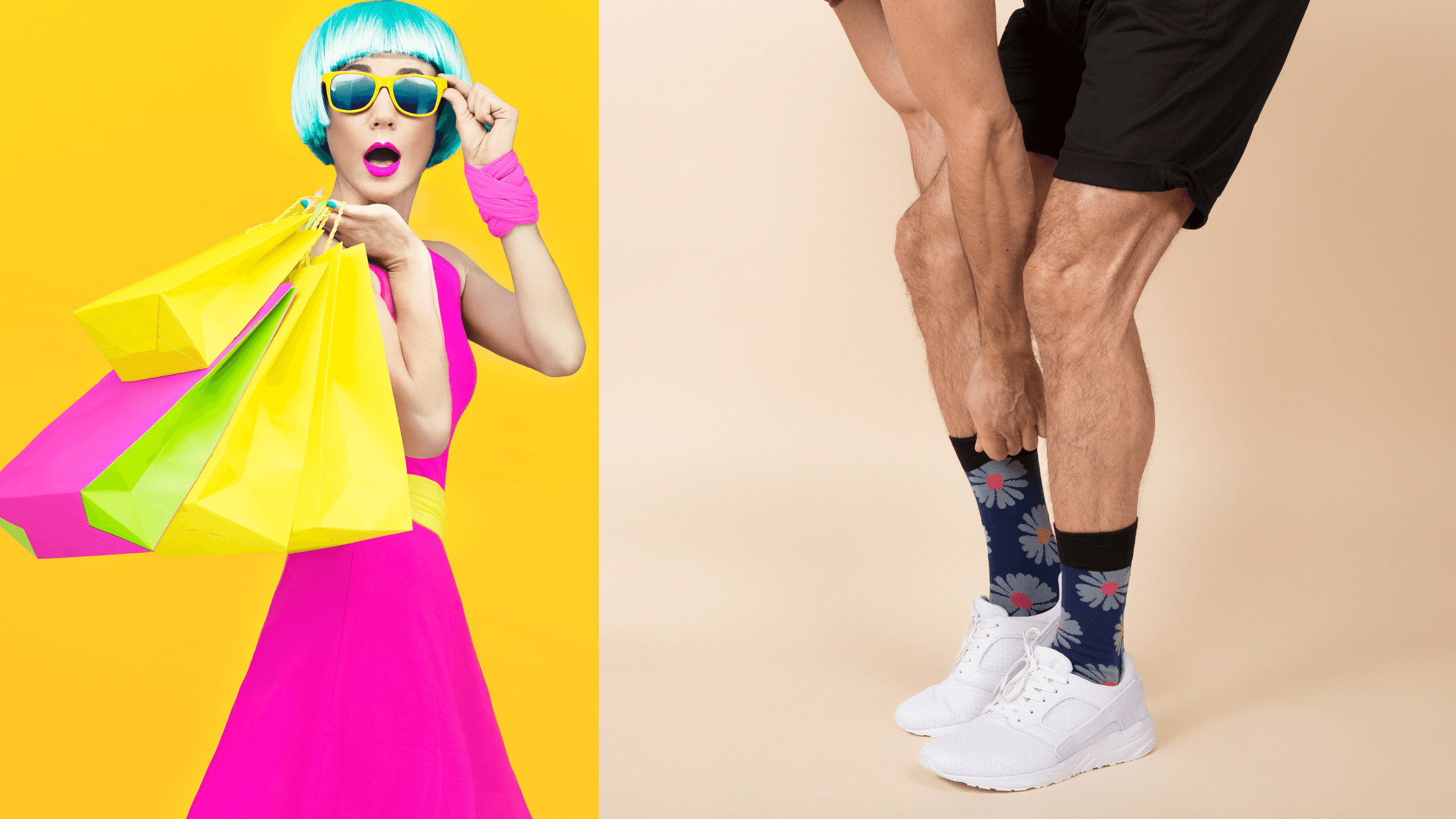
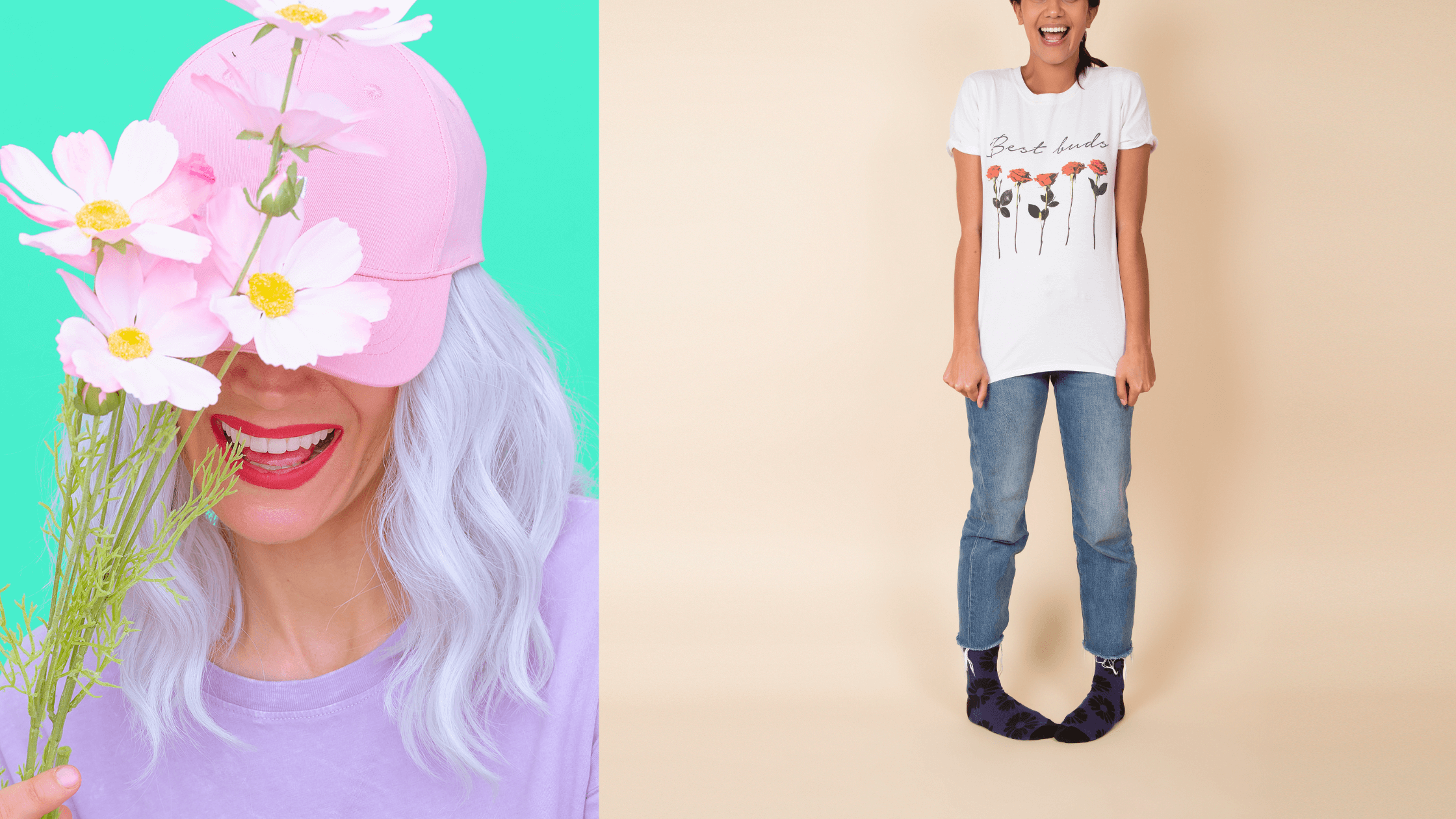







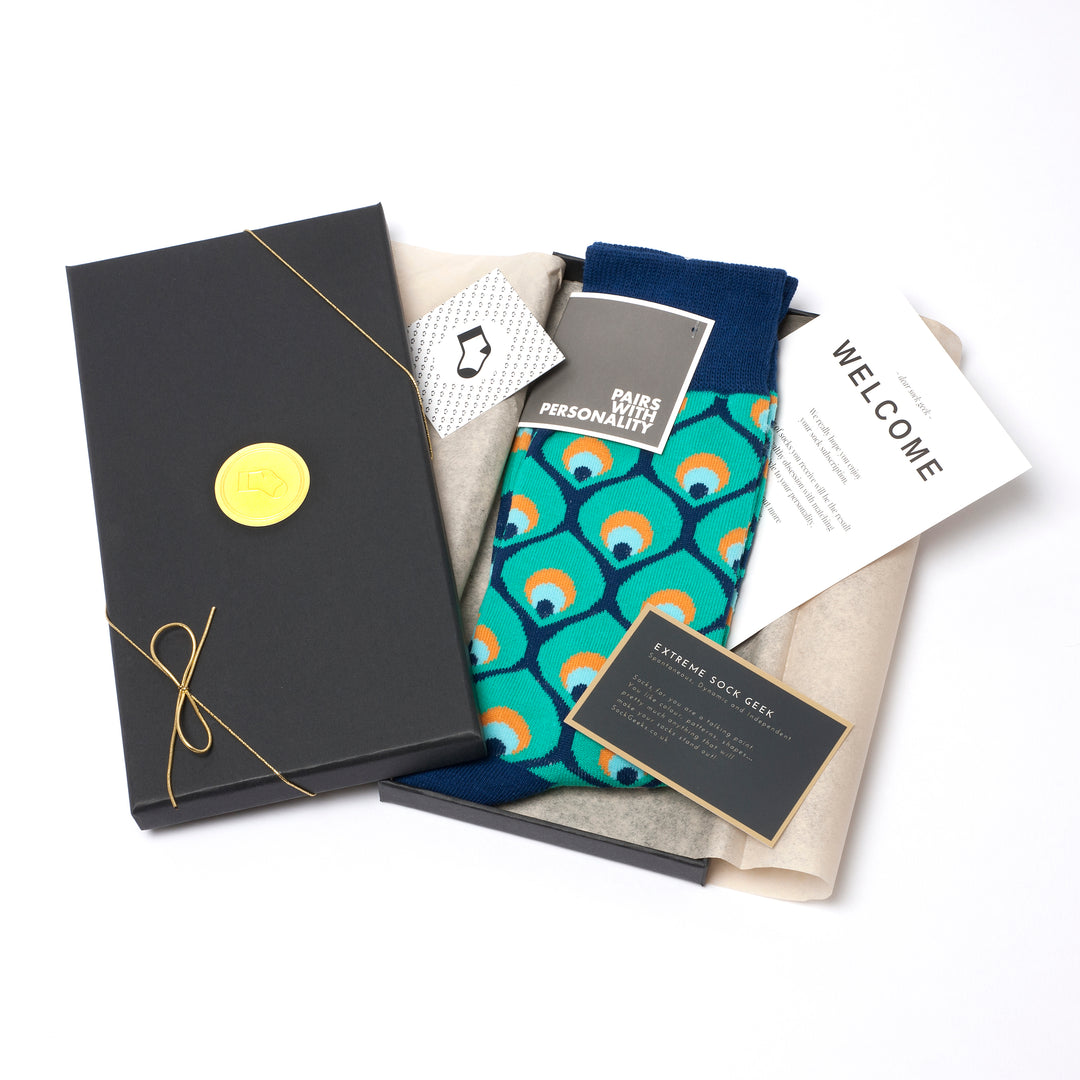

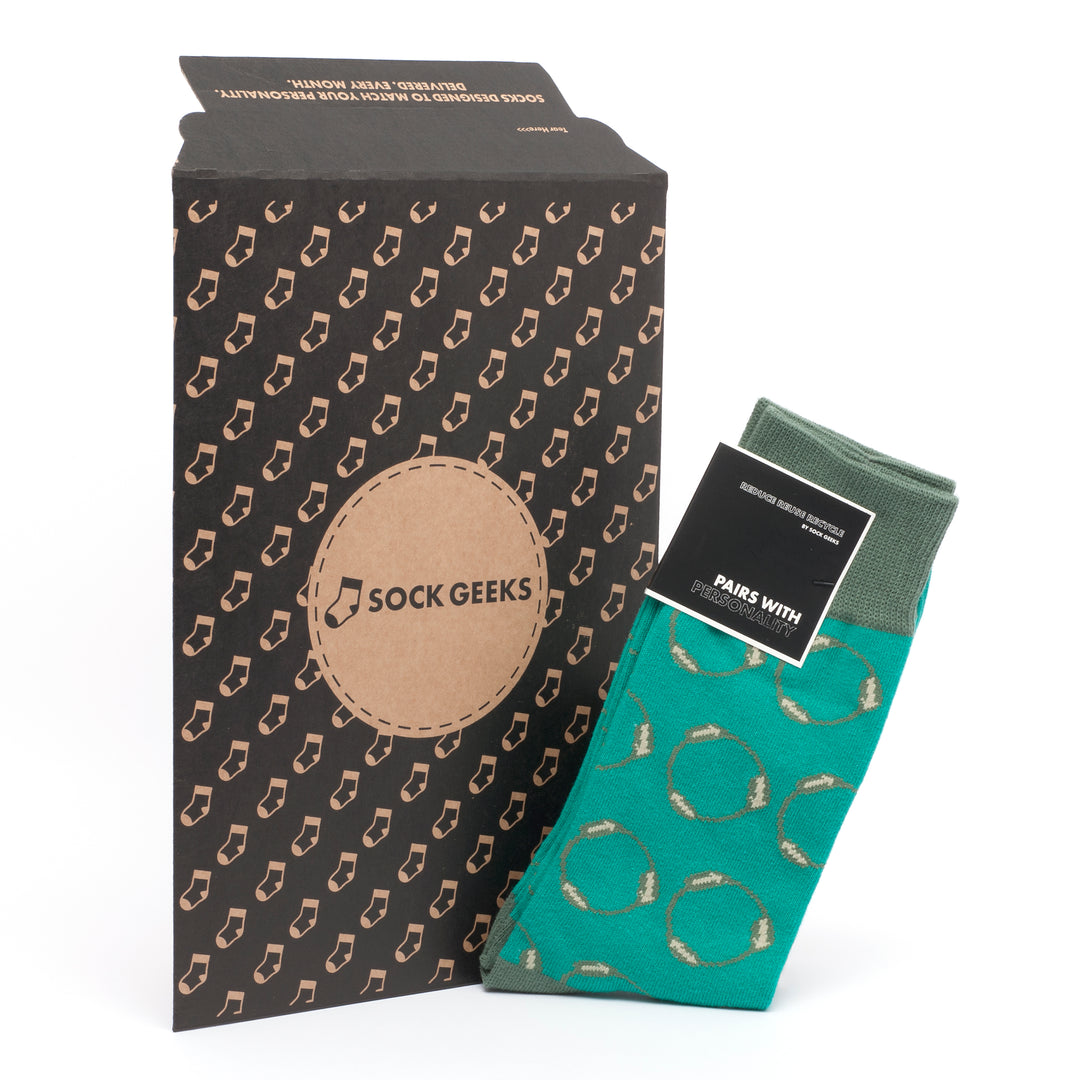
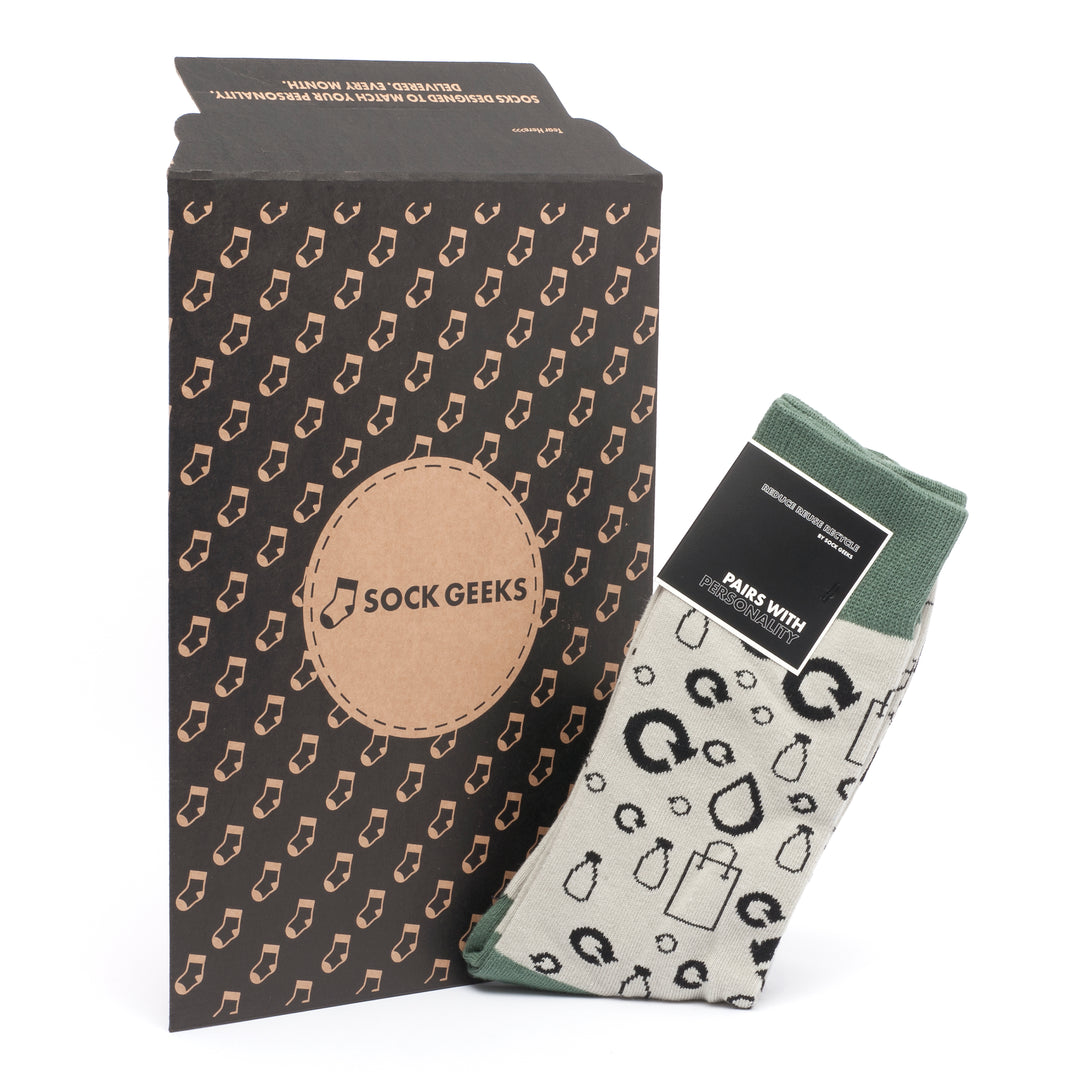



Leave a comment